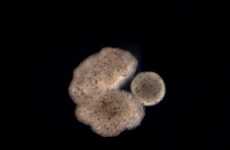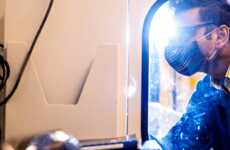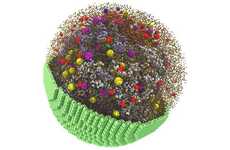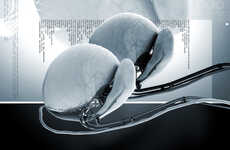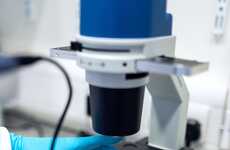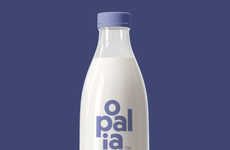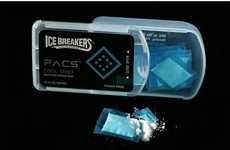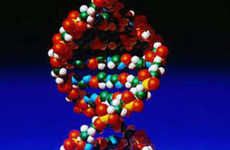
Craig Venter's "Designer" Cells
Victoria Tremlin — January 26, 2008 — Science
References: guardian
Biologists have announced the creation of a new synthetic chromosome as an advancement towards generating artificial life.
Craig Venter and his team aim to transplant the new strand of DNA into a living cell. They have already achieved a similar concept that has proven they can transplant a strand into a cell in order to change its species. However, this new work aims to cause the cell to grow and reproduce.
Venter says that once they have produced a 'designer' cell in this way, they can use it to create alternative energy sources or tackle climate change by soaking up CO2. Venter claims that an artificial fuel producing micro could be the first trillion dollar organism.
Craig Venter and his team aim to transplant the new strand of DNA into a living cell. They have already achieved a similar concept that has proven they can transplant a strand into a cell in order to change its species. However, this new work aims to cause the cell to grow and reproduce.
Venter says that once they have produced a 'designer' cell in this way, they can use it to create alternative energy sources or tackle climate change by soaking up CO2. Venter claims that an artificial fuel producing micro could be the first trillion dollar organism.
Trend Themes
1. Synthetic Chromosomes - Advancements in creating synthetic chromosomes lead to new opportunities to generate artificial life and create designer cells with specific purposes.
2. Designer Cells - Creating designer cells could lead to innovation in alternative energy sources and solutions to climate change.
3. Artificial Microorganisms - Developing microorganisms that can produce artificial fuels could lead to a trillion-dollar industry and major disruption in the energy sector.
Industry Implications
1. Biotechnology - Advancements in synthetic chromosomes and designer cells will have a significant impact on biotechnology, opening up new avenues for research and development.
2. Energy - The development of artificial microorganisms for the production of fuels and as a solution for climate change will disrupt the energy sector and present new opportunities for innovation.
3. Environmental Science - The creation of designer cells for the purpose of absorbing CO2 and addressing climate change will lead to further research in the field of environmental science as well as new solutions to major global challenges.
0.7
Score
Popularity
Activity
Freshness

